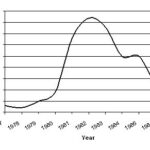Defining a deity isn’t as straightforward as it may seem. The term encompasses a wide range of beliefs and understandings, varying significantly across different cultures and religions. This exploration delves into the multifaceted concept of a deity, examining its manifestations in both polytheistic and monotheistic systems.
Deities in Polytheistic Religions
Many are first introduced to the concept of deities through mythology, such as the tales of ancient Greece. Figures like Zeus, Hera, Aphrodite, and Poseidon, while recognized as fictional within mainstream modern society, represent a core understanding of what a deity can be. Their stories have permeated Western culture, inspiring countless movies, television shows, and comic books.
According to Merriam-Webster, one definition of “deity” is “a god or goddess,” a being who is, or was, worshiped. In polytheistic religions, deities are often supernatural beings inhabiting realms beyond ordinary human perception yet interacting with the mortal world. These deities typically form a pantheon, a collection of gods worshiped within a specific religious framework. Each deity is often associated with a particular element of nature or aspect of life. For example, there may be a god or goddess of the sky, the sea, the harvest, or love.
Ancient civilizations such as the Egyptians, Celts, Norsemen, Romans, and Babylonians, largely practiced polytheistic religions, each with its unique set of gods. This tradition continues today in various cultures. Hinduism, with its diverse array of gods and goddesses, can be considered a polytheistic religion. Additionally, The Church of Jesus Christ of Latter-day Saints holds a belief in the existence of multiple gods. Modern paganism and various tribal religions also maintain polytheistic belief systems, each with its own interpretation and practices.
The Concept of Monotheistic Deities
The term “monotheistic deities” might appear paradoxical. Monotheism, by definition, is the belief in one God. While polytheistic faiths often acknowledge that different cultures may have their own gods without mandating universal worship of a single pantheon, monotheistic faiths assert the existence of only one God, who should be universally worshiped.
Another definition of “deity” in Merriam-Webster is “the God, or the one Supreme Being.” This definition denotes Deity with a capital “D.” Major monotheistic religions like Christianity, Judaism, and Islam each claim that the God they worship is the sole Deity, the Supreme Being responsible for creating the universe and deserving of exclusive worship.
However, understanding the nuances of monotheistic faiths reveals diverse interpretations of God’s nature. Christianity worships the Holy Trinity—Father, Son, and Holy Spirit—believing in one God existing in three distinct persons. Judaism and Islam, on the other hand, reject the concept of a triune God. Islam reveres Allah, a monadic deity whose final revelation was delivered through Muhammad. Contemporary Judaism, which does not recognize Jesus as the Messiah, worships Yahweh, also a monadic deity.
In conclusion, the concept of a deity is complex and varied. From the pantheons of polytheistic religions to the singular God of monotheistic faiths, the understanding of what constitutes a deity is shaped by cultural, historical, and theological factors.

